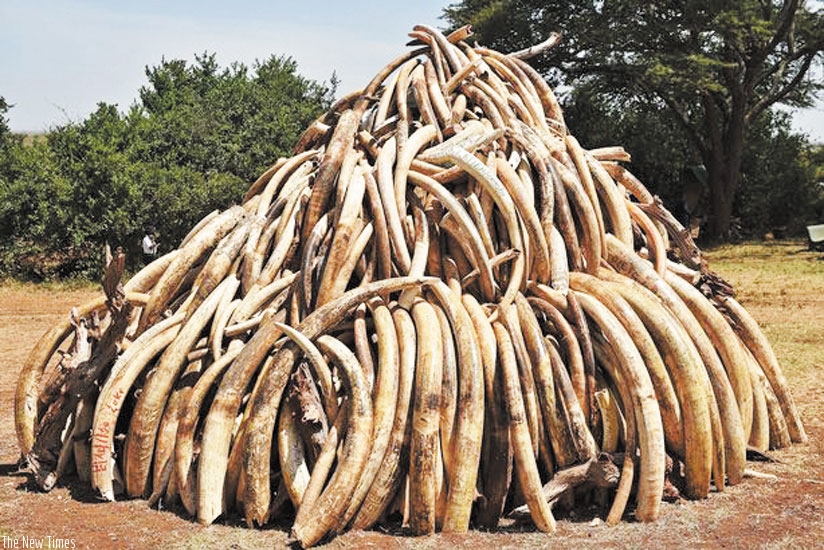The East African Business Council (EABC) is considering ways to curtail counterfeits and other forms of illicit trade through inter-agency cooperation at national and regional level.


The East African Business Council (EABC) is considering ways to curtail counterfeits and other forms of illicit trade through inter-agency cooperation at national and regional level.
This will particularly be explored next month during a regional anti-illicit trade conference to be held in Nairobi, Kenya.
The broad objective of the conference will be to come up with proposed policy reforms and key recommendations for prioritised and expedited implementation.
Key sectors affected by counterfeits and other forms of illicit trade will have an opportunity to discuss how their businesses are impacted, and what solutions they propose.
EABC chief executive Lilian Awinja said they are pushing to have a robust legal and policy framework at the regional level to have proper enforcement and surveillance mechanism in all EAC partner states.
Awinja’s revelations come days after reports indicated that a Rwandan businessman, Emile Kayumba, was remanded to Uganda’s Luzira prison in connection with illegal dealing in ivory.
Earlier this week, media reports from Uganda indicated that, in October 2013, Uganda Revenue Authority (URA) impounded 832 pieces of elephant tusks weighing about three tonnes concealed in a container.
It is reported that the man linked to the case, Kayumba, was arrested last week at Entebbe International Airport. He was charged by anti-corruption court and remanded until August 25 for mention of the case.
"We are doing a lot on illicit trade, not just in ivory but also in other forms of illicit trade like counterfeiting, smuggling, money laundering and others,” Awinja told The New Times.
In October 2010, EABC, in partnership with the East African Community (EAC) Secretariat and the Kenyan government held the first regional anti-illicit trade conference.
At the time, key recommendations from the conference included: need to expedite harmonisation of legal regimes related to intellectual property rights (IPR) and the legislation regimes, including patents, copyrights, trademarks and industrial designs; and putting in place punitive laws to deter the practice of trading in counterfeit products and other forms of illicit trade.
Since then, areas of progress in the fight against illicit trade include adoption of the EAC Anti-Counterfeit Bill, 2013, by the Council of Ministers; full operationalisation of the Anti-Counterfeit Agency in Kenya; formulation of the Anti-Counterfeiting Goods Bill of 2015 in Uganda, which has been debated in parliament.
Rwanda has formulated the Competition and Consumer Protection Bill.
The EAC Heads of States and key businesses also endorsed and launched the EABC Regional Code of Conduct, in March 2016.
But the EABC says a lot remains to be done to win the fight against illicit trade.
Illicit trade includes intellectual property infringements; trade in sub-standard goods that can cause health or safety risks, parallel imports and undeclared local production, smuggling of excisable goods and a variety of illicit financial flows.According to the organisers of the upcoming conference, it is driven by the economic opportunity it offers for illicit vendors to make money illegitimately in an environment where opportunity for economic benefit is perceived to outweigh the actual risks involved.
"The conference will address all these issues, stakeholders are invited to participate in large numbers and to contribute to the discussions to effectively come up with an action [plan] that works and which involves all stakeholders. Everyone has a role to play; the revenue authorities, the bureaus of standards, the police, the parliament, ministries, the media, the business community and others,” said Awinja.
Media help
Awinja told The New Times that EABC needs the media to help highlight how important the issue is.
"The media should highlight how it is affecting our businesses and the EAC economy and the work that needs to be done by various stakeholders to deal with the issue,” she said.
The Organisation for Economic Co-operation and Development (OECD) estimates that EAC governments lose over $500 million in tax revenue annually due to the influx of counterfeit and pirated products.
This figure does not encompass several other forms of illicit trade and, as such, total tax revenue losses from illicit trade would be larger.
Uganda is said to lose an equivalent of $1.4 billion – almost 5.5 per cent of its GDP – with Tanzania estimated to lose about $1.5 billion in revenue to counterfeits.
The Kenya Association of Manufacturers (KAM) estimates a loss of more than $500 million annually to illicit trade and its estimated government loses more than $350 million.
In April, Kenya burned 105 tonness of ivory and rhino horn in public show of the country’s determined intent to eradicate poaching.
editorial@newtimes.co.rw


